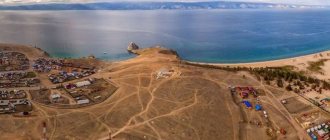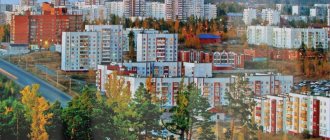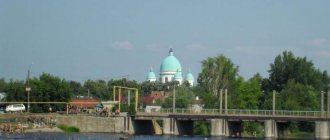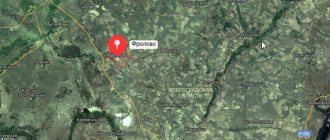Town in Irkutsk Oblast, Russia
| Biryusinsk Biryusinsk | |
| City [1] | |
| View of Biryusinsk | |
| Flag Coat of arms | |
| Location Biryusinsk | |
| Biryusinsk Location Biryusinsk Show map of Russia Biryusinsk Biryusinsk (Irkutsk region) Show map of Irkutsk Oblast | |
| Coordinates: 55°58'N 97°50'E / 55.967°N 97.833°E / 55.967; 97.833 Coordinates: 55°58'N 97°50'E. / 55.967°N 97.833°E / 55.967; 97.833 | |
| A country | Russia |
| Federal subject | Irkutsk region [1] |
| Administrative region | Tayshetsky district [2] |
| Based | 1897 |
| City status from | 1967 |
| Height | 300 m (1000 ft) |
| population size (2010 Census) [3] | |
| • General | 8 981 |
| • Evaluate (2018) [4] | 8 497 ( -5,4% ) |
| Municipal status | |
| • Municipal district | Taishet municipal district [5] |
| • Urban village | Biryusinsky urban settlement [5] |
| • Capital from | Biryusinsky urban settlement [5] |
| Timezone | UTC+8 (MSK+5[6]) |
| Postal code [7] | 665050–665053 |
| Dial code(s) | +7 39563 |
| OKTMO ID | 25636105001 |
| Web site | www.biryusinsk.ks8.ru |
Biryusinsk
(Russian: Biryusinsk, IPA: [bʲɪrʲʉsʲinsk]) is a city in Taishetsky District in Irkutsk Oblast, Russia, located on the right bank of the Biryusa River (Angara's basin), 682 km (424 mi) northwest of Irkutsk, the administrative center in area . Population: 8,981 (2010 census); [3] 10,004 (2002 census); [8] 12,066 (1989 census). [9]
Previously it was called Suyetikha
(until 1967).
Story
In 1897, during the construction of the Great Siberian Railway, the Suetikha crossing was founded (the first mention dates back to 1894). The first government barracks-barracks were built near the Biryusa River, in which workers lived. The name of the crossing arose from the Suetikha River flowing nearby. Until 2007, Biryusinsk was administratively subordinate to Taishet.
Some events in the history of Biryusinsk
| Year | Event |
| 1897 | During the construction of the Trans-Siberian Railway, the Suetikha crossing was created |
| 1899 | A small settlement has formed around the crossing |
| 1912 | The first sawmill was launched. The first brick factory was built. |
| 1927 | A new large sawmill is being created |
| 1929 | The second four-frame sawmill went into operation |
| 1932 | A kindergarten and a seven-year school were opened |
| 1933 | Built a club named after. Paris Commune and station building |
| 1934 | The village of Suetikha was transformed into a workers' settlement |
| 1938 | Secondary school opened (No. 6) |
| 1940 | About 1 thousand people are employed in the sawmill production of the village |
| 1943 | A decision was made to develop the hydrolysis industry in the USSR. This decision was formalized by the corresponding decision of the Council of People's Commissars of the USSR dated May 3, 1943. This document became the basis for the design and construction of the Biryusa and Tulun hydrolysis plants. |
| 1946 | The design assignment for the construction of a hydrolysis plant with a capacity of 500 thousand dal was approved. alcohol and 1 thousand tons of yeast in the village of Suetikha. |
| 1947 – 1952 | Construction period of the hydrolysis plant |
| 1952 | The first product was produced - ethyl alcohol. |
| 1952 | There is a library in the village |
| 1953 | The hydrolysis plant has reached its design capacity, producing ethyl alcohol and feed yeast |
| 1955 – 1956 | A new design assignment was developed and approved, which provided for the expansion and modernization of the existing hydrolysis production |
| 1956 | Another secondary school was put into operation (No. 16) |
| 1957 | A new (brick) hospital building was built |
| 1961 | A children's library and another primary school have been opened (No. 10) |
| 1962 | Furfural production began at the hydrolysis plant |
| May 1967 | The village of Suetikha received city status and was renamed Biryusinsk |
| 1971 | The Biryusa cinema with 300 seats was built |
| 1974 | Music school opened |
| 1980 | A building was built for a local history museum and an art school |
| 1986 – 1990 | A sports complex (swimming pool, gym, hockey court) was built at the expense of the hydrolysis plant. |
| 1992 | Hydrolysis plant corporatized |
| 2005 | Hydrolysis plant closed |
| 2008 | The possibility of constructing housing and social and cultural facilities for the Taishet aluminum smelter in Biryusinsk is being considered |
Transport
The Trans-Siberian Railway runs from the northern side of Biryusinsk, where a railway station has operated since the pre-revolutionary period. Until 1967 it was called Suetikha. With the assignment of city status to the settlement and its renaming, it began to be called Biryusinsk.
From the Biryusinsk station the products of the hydrolysis plant and lumber produced by the lumber mill were sent. Carloads of raw materials arrived here. After the bankruptcy of the enterprises, the station's freight turnover decreased significantly and in 2008 did not exceed 50 thousand tons (695 cars).
In 2008, 18.6 thousand people were sent from Biryusinsk by commuter trains, and 6.3 thousand people by long-distance trains.
On the southern side of the city runs the Abakan-Tayshet railway, which belongs to the Krasnoyarsk Railway. In the vicinity of Biryusinsk, there is a Tagul station on this highway. About 53 thousand tons of cargo are sent from here per year, mainly timber.
Not far from the city there is the federal highway M-53 “Baikal” (Novosibirsk-Irkutsk). In addition, Biryusinsk is connected by road to the city of Taishet and a number of nearby settlements on the right bank of Biryusa.
Passenger transportation within Biryusinsk is provided by fixed-route taxis (along the Circle route, covering the central part of the city and the Tagul residential area). Intercity transportation between Biryusinsk and Taishet is carried out by municipal transport and private carriers.
Table 19. Distance from Biryusinsk to some cities, km
| City | Distance | |
| by rail | by road | |
| Biryusinsk | — | — |
| Taishet | 13 | 13 |
| Alzamay | 84 | 80 |
| Nizhneudinsk | 176 | 170 |
| Vikhorevka | 282 | 497 |
| Tulun | 293 | 293 |
| Bratsk | 306* | 518 |
| Krasnoyarsk | 405 | 356 |
| Winter | 432 | 426 |
| Cheremkhovo | 552 | 543 |
| Zheleznogorsk-Ilimsky | 568 | 779 |
| Usolye-Sibirskoye | 615 | 616 |
| Angarsk | 643 | 647 |
| Irkutsk | 682 | 691 |
| Ust-Kut | 736** | 887 |
| Ust-Ilimsk | 803 | 778 |
| Slyudyanka | 808 | 803 |
| Ulan-Ude | 1138 | 1141 |
Population
The population of Biryusinsk grew steadily until the 1970s, then began to decline due to a slight decrease in the birth rate, mainly due to migration outflow, which increased greatly in the early 2000s after the bankruptcy of the Biryusinsky hydrolysis plant.
Population dynamics
| 1959 | 1970 | 1979 | 1989 | 1996 | 1998 |
| 13 300 | 13 461 | 12 676 | 12 100 | 12 000 | 11 900 |
| 2000 | 2001 | 2005 | 2006 | 2007 | 2008 |
| 11 500 | 11 500 | 9700 | 9600 | 9500 | 9400 |
| 2010 | 2011 | 2012 | 2013 | 2019 | 2020 |
| 8981 | 9000 | 8815 | 8701 | 8430 | 8416 |
As of January 1, 2022, the city ranked 988th out of 1,115 cities in the Russian Federation in terms of population.
Population structure of Biryusinsk in 2009, %
| Population group | Share |
| Preschoolers | 9,0 |
| Pupils | 13,0 |
| Adults | 54,5 |
| Pensioners | 23,5 |
Transport accessibility
The city is located 682 km from Irkutsk, 12 km from Taishet, 400 km from Krasnoyarsk, near the Trans-Siberian Railway, on the banks of the Biryusa River (hence its name), 682 km from the regional center and 12 km from the district.
Distance from Biryusinsk to some cities, km
| City | Distance | |
| by rail | by road | |
| Biryusinsk | — | — |
| Taishet | 13 | 13 |
| Alzamay | 84 | 80 |
| Nizhneudinsk | 176 | 170 |
| Vikhorevka | 282 | 497 |
| Tulun | 293 | 293 |
| Bratsk | 306* | 518 |
| Krasnoyarsk | 405 | 356 |
| Winter | 432 | 426 |
| Cheremkhovo | 552 | 543 |
| Zheleznogorsk-Ilimsky | 568 | 779 |
| Usolye-Sibirskoye | 615 | 616 |
| Angarsk | 643 | 647 |
| Irkutsk | 682 | 691 |
| Ust-Kut | 736** | 887 |
| Ust-Ilimsk | 803 | 778 |
| Slyudyanka | 808 | 803 |
| Ulan-Ude | 1138 | 1141 |
The appearance of the settlement
Biryusinsk is almost entirely built up with one-story wooden houses. Only in its central part there are five-story panel buildings (13 buildings). In some places you can find brick private cottage-type buildings. The buildings of a bankrupt hydrolysis plant are visible. In the summer there is an abundance of greenery in Biryusinsk, and in the winter there is a lot of snow. The small population, compactness and remoteness of Biryusinsk from regional and district centers give it a special provincial flavor.
City infrastructure
Streets
Academician Pavlova, Alexander Nevsky, Beregovaya, Berezovaya, Hospital, Bogdan Khmelnitsky, Vodopyanova, Vokzalnaya, Gaidar, Gogol, Gorky, Dachnaya 2nd, Dachnaya 3rd, Druzhby, Zheleznodorozhnaya, Zhelyabova, Zhilgorodok, Zhuravleva, Green 1st, Green 2nd, Green 3rd, Zabobonina, Zavodskaya, Zoya Kosmodemyanskaya, Ivan Beach, Kalinin, Kirov, Komsomolskaya, Red Star, Krupskaya, Kuyshev, Kuprin, Lazo, Lenin, Lermontov, Marat, Matrosov, Mayakovsky, Mira , Mostovaya, Youth 1st, Youth 2nd, Youth 3rd, Embankment, Nagornaya, Nekrasova, Nikitina, Novaya, Oktyabrskaya, Ostrovsky, Paris Commune, Partizanskaya, Pervomaiskaya, Pioneer, Subsidiary Farm. Pobeda, Polevaya, Pushkin, Rechnaya, Sverdlova, Warehouse, Soviet, Sports, Stadium, Construction, Transport, Frunze, Chernyshevsky, Chekhov, Chkalov, Shevchenko, Shkolnaya, Shushkevich, Yubileynaya, Yuzhnaya.
Lanes
Nameless, Vokzalny, Gorky, Lesnoy, Soviet, Transport.
village .
Microdistrict New.
Residential buildings : 4510 km, ECHK-25, MPS.
Economy
The city-forming basis of Biryusinsk was a hydrolysis plant that produced ethyl alcohol, alcohol-containing products, furfural, feed yeast, and carbon dioxide. The enterprise's boiler house provided the city with heat, and the plant's treatment facilities, in addition to production ones, purified household wastewater in Biryusinsk. In 2005, production of the plant was discontinued.
The second most important industry in the city's economy was the railroad. After the closure of the hydrolysis plant, it began to play a decisive role in the economy of Biryusinsk. Currently, this industry is represented by the Biryusinsk railway station and the PMS-67 division of the Eastern Railway, as well as the Tagul distance of the Abakan branch of the Krasnoyarsk Railway.
The third branch of Biryusinsk's specialization was sawmilling. The first sawmill was launched in 1912. In Soviet times, a large sawmill and woodworking plant was created. In the 1990s, all that remained were railway sidings, which began to be used for the shipment of round timber.
Other industries include trade, consumer services, catering, etc. About 20 small enterprises and about a hundred private entrepreneurs are engaged in these types of activities. The importance of these industries in the city’s economy increased significantly after the closure of the hydrolysis plant.
The municipal budget in 2016 amounted to 15 million rubles.
Prospects
After the closure of the hydrolysis plant, Biryusinsk lost its city-forming basis. Its future prospects are currently connected with the railway, logging and wood processing. But further development of the city will require a more substantial economic basis. Options for placing new production facilities on the site of the former hydrolysis plant are already being considered. An important development factor will be the activation of small businesses.
Certain hopes for the revival of Biryusinsk are associated with the construction of an aluminum smelter near Taishet and the possibility of placing in Biryusinsk a residential microdistrict and the corresponding infrastructure facilities for its workers, who could live in it and be transported to work and back by a fixed-route electric train (following the example of Bratsk).
Social sphere
The city has several schools (three for secondary education, one for primary education, music and art) and four municipal pre-school educational institutions. There is a House of Children's Creativity, where there are 12 creative associations in various areas (art, local history, etc.) The Children's Art School of Biryusinsk (MOU DOD DSHI of Biryusinsk) and the Sports School of Biryusinsk (MBOU DOD Youth Sports School of Biryusinsk) operate.
Medical services to the population are provided by the Biryusinsk City Hospital. Medicines are provided by three pharmacies (including one municipal).







